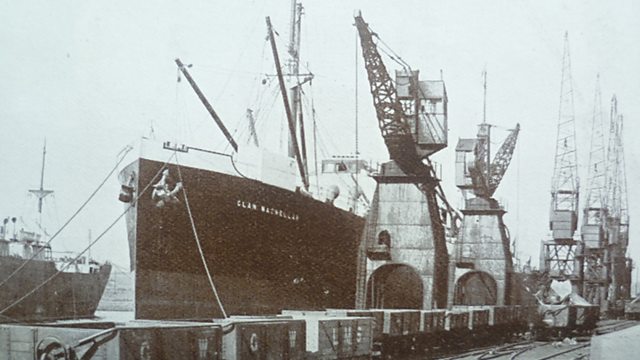King’s Dock, Swansea: A Hotbed of Immorality
Middle class citizens of Swansea felt their town was going downhill, and that girls were being lured by lusty Scandinavian seamen into a life of prostitution and debauchery
From July 1915 middle-class citizens of Swansea became increasingly agitated by evidence of sexual activity between young women of the town and visiting Scandinavian seamen.
According to one councillor, a Mr Powlesland, Swansea was a ‘hotbed of immorality’, and he alleged that girls as young as thirteen years of age had been seen coming and going from foreign ships.
Soon Mr Powlesland’s anguished cry was to be echoed by many others, both male and female, and deep concern that moral standards were in sharp decline.
Powlesland, a member of Swansea’s Watch Committee (the local police authority), was concerned that respectable young girls were being led astray, and turning to prostitution as a source of income. In this, he may well have been right: in the early stages of the war, many young women did face a period of unemployment and economic hardship as their jobs disappeared.
Nevertheless, the Chief Police Constable gave his assurance that, even if they were no better, things were certainly no worse in Swansea than they had been before the war.
This was not to be the end of the affair. In June 1916, under the energetic leadership of Lady Llewelyn, and Lady Lyons, a Swansea Women’s Citizens Union was formed to clean up the place and to ‘stem the tide of immorality sweeping over the town’. This ‘Purity Crusade’ lobbied the Watch Committee and was determined to clean up the town.
Meanwhile, ministers such as the Rev T Sparrow thundered from the pulpits, bemoaning Swansea’s perceived moral decline, calling the docks a ‘cesspit of immorality’!
Whether the ‘crusade’ worked is open to question. In 1918 the Vicar of Kilvey still had cause to preach about the town’s perceived immorality, after discovering a couple engaged in the act of fornication in the street. ‘Sin’ he alleged, ‘was corrupting and tending to destroy the manhood of Swansea’.
In this respect, the vicar reflected social attitudes of the time. Underlying the general worries about prostitution was a wider concern about the spread of venereal disease.
At a time when the government itself estimated 10% of the urban population to be infected with syphilis, and 3 or 4 times that number infected with gonorrhoea, there was understandable concern for the wellbeing of the population at large.
Location: King’s Dock, Swansea , SA1 1LY
Duration:
This clip is from
Featured in...
![]()
Â鶹ԼÅÄ Radio Wales—World War One At Â鶹ԼÅÄ
Places in Wales that tell a story of World War One
![]()
Women—World War One At Â鶹ԼÅÄ
How war transformed the status and role of women
More clips from World War One At Â鶹ԼÅÄ
-
![]()
The loss of HMY Iolaire
Duration: 18:52
-
![]()
Scotland, Slamannan and the Argylls
Duration: 07:55
-
![]()
Scotland Museum of Edinburgh mourning dress
Duration: 06:17
-
![]()
Scotland Montrose 'GI Brides'
Duration: 06:41







